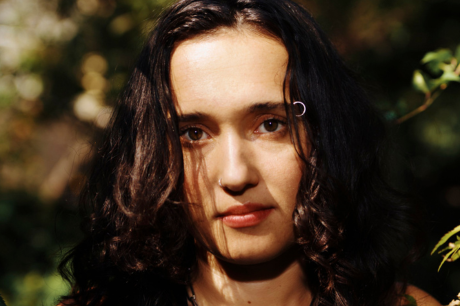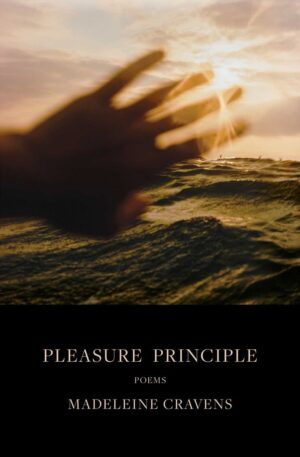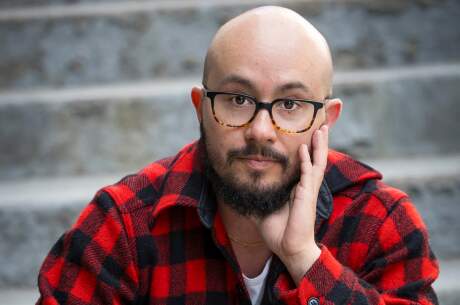In Their Own Words
Madeleine Cravens on “Road to Byblos”

Mechanized time
was an invention created
to sustain entire empires.
And love, I knew, could be expressed
through an idiom about graves.
We rode past the beachside
nightclub and three
cement factories.
I wasn’t in love.
I never knew what time it was.
Smoke unfurled from the air base.
A pregnant dog howled
under a fig tree.
Reprinted from Pleasure Principle (Scribner, 2024) with the permission of the poet. All rights reserved.
On “Road to Byblos”
Between 2018 and 2019 I lived in Lebanon. I kept a journal that year, and in 2022, while I was working on my first poetry collection, I assembled this poem from an entry I found inside it. I experimented with different juxtapositions of images until I felt I had made something vivid and specific: it was sort of like making a collage. The entry I drew from was about a day I spent with a close friend in late April 2019, riding bikes between the coastal cities of Batroun and Byblos.
In the first stanza, I’m pretty sure I was thinking about a book I had read in college: On Time by the cultural historian On Barak, which is a history of transportation and communication technologies in the Middle East. The first stanza is basically just my memory of the book’s central claim. It was very impactful, in my early twenties, to begin to see standardized timekeeping as a means of control.
The second stanza references an expression in Lebanese Arabic: ta’borni (تؤبرني ). The literal English translation is “you bury me.” But it’s a term of endearment, something you say to someone you love, someone you couldn’t imagine being alive without.
The third stanza and fourth stanzas are environmental observations about what my friend and I biked passed that day in April. Nightclub, factories, a pregnant dog. There was something else about a chicken processing plant, but I couldn’t get it to work in this poem. I wish I had been able to fit that in. But I also knew I needed the poem to be short, without any extraneous language or fanfare.
The fourth stanza is just how I was feeling.



